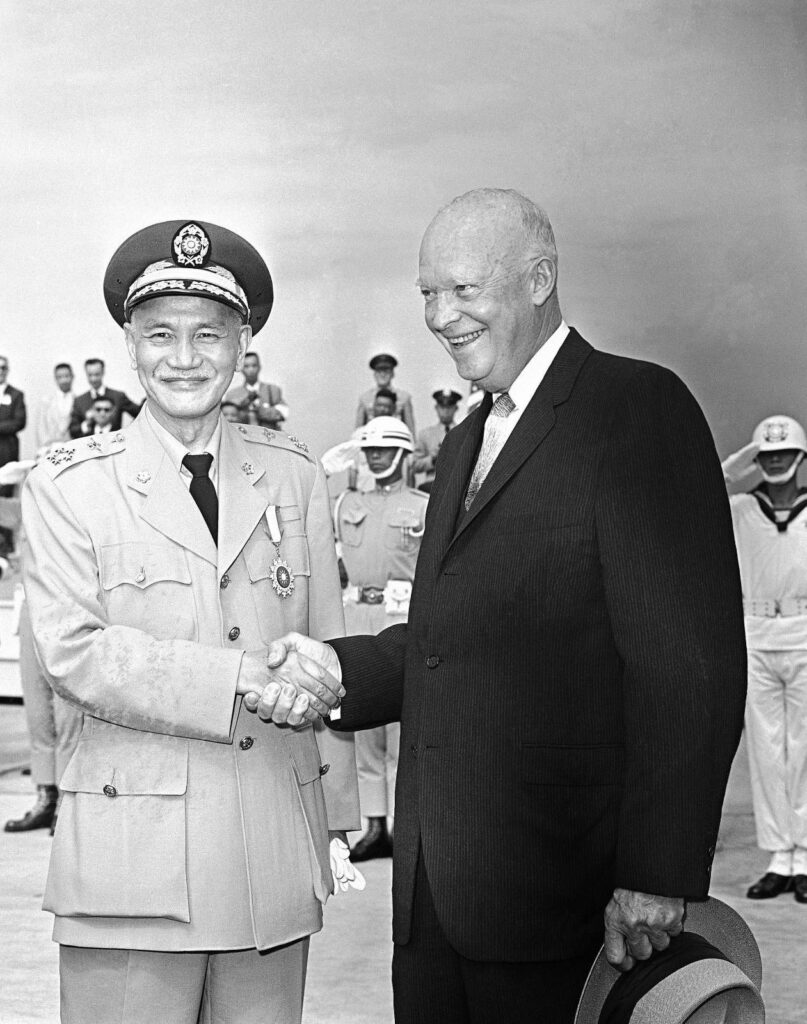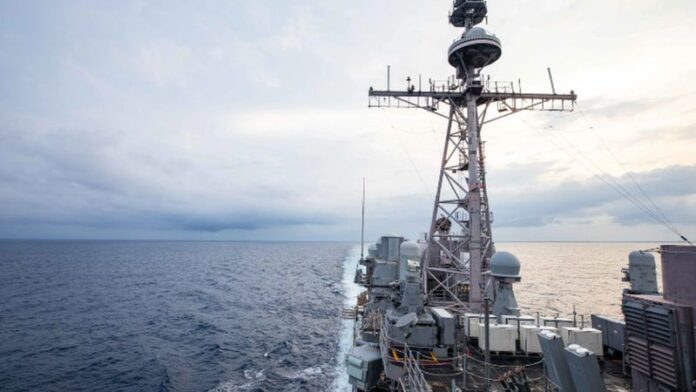Will China invade Taiwan?
As the US-China inter-imperialist conflict escalates, Taiwan is its most dangerous flashpoint. A Taiwan war could be even more catastrophic than the war in Ukraine, drawing in the US, Japan, Australia, several NATO armies, and possibly India, against China. It has long been a tenet of China’s so-called Communist dictatorship (CCP) to “reunify” Taiwan with mainland China. The restoration of capitalism by the CCP has forced it to replace empty “socialist” rhetoric with increasingly strident nationalism.
Xi Jinping especially relies on militarism, nationalism and threats to take control of Taiwan as a way to legitimize his dictatorship. Chinese air force incursions over Taiwan’s air defence identification zone reached a new record in 2022 (1,727 planes compared to 960 in 2021). But Xi’s ultra-repressive rule in China and crushing of limited democratic rights in Hong Kong has further repelled the people of Taiwan, making the CCP’s hand weaker in reality. A military attack would be very risky for Xi. If it failed, the dictatorship could collapse. Socialists don’t underestimate the danger of a Taiwan war, but see behind the rhetoric of both sides. At this stage, the real balance of forces makes the Chinese side more cautious.
One China policy
For 40 years, US-China relations have been anchored on Washington’s One China Policy. This dates from 1979, when president Jimmy Carter established formal diplomatic ties with Beijing. The US acknowledged China’s position that there is only one Chinese government. This was a concession to the CCP because US companies wanted to force open its economy. Taiwan was downgraded, but the US position has been deliberately vague, to maintain “unofficial ties” with Taiwan. Now this agreement is unravelling.
The US side is expanding its “unofficial” Taiwan ties and militarising the island. Some politicians in the US openly call for scrapping the One China Policy. It is the US side that is now raising the stakes in this conflict. Biden’s government wants to increase pressure on Xi Jinping and project the message that “America is back” in the Indo-Pacific.
The latest US military spending bill (National Defense Authorization Act) provides $10bn for weapons to Taiwan, the first time the US government will finance weapons for the island. Previously Taiwan paid for its weapons after receiving US government approval. November’s narrow victory of the Republicans who took control of the US House of Representatives could lead to an even tougher pro-Taiwan, anti-China line.
Currently, the extreme weakness of the Chinese economy which is fuelling mass unrest, pre-occupies Xi Jinping. Rather than respond aggressively to what are obviously provocative US moves, Xi has adopted a softer, evasive line. But this unstable interlude can erupt in a new and sharp escalation at any moment.
Microchips: “The new oil”
Taiwan is sometimes described as the “Saudi Arabia of Chips” because of its overwhelming share – around 65% – of the global market for microchips. The global economy is dependent on microchips as the “brains” of modern electronics, used in communications, planes, cars, healthcare, as well as computers. They play a decisive role in modern warfare, as shown in Ukraine. Taiwan’s TSMC has around 55% of the global market for contract chip fabrication, and 90% of the most advanced chips. Credible leaks reveal the US military has contingency plans to destroy TSMC’s factories in Taiwan and evacuate its engineers in the event of a Chinese takeover of Taiwan.
Good and bad nationalism?
Socialists distinguish between the chauvinistic nationalism of imperialist countries and nationalism where national rights are oppressed such as in Scotland, Ukraine and Tibet. In Taiwan, the striving for independence has a socially progressive content. That doesn’t mean the Taiwan nationalists – dominated by pro-capitalist ideas – play a progressive role. Socialists fight against all national, linguistic and religious oppression and for the right of self-determination. But we do this as international socialists and oppose the narrow nationalism of the bourgeois nationalists, which usually makes them the “tail” of one or other imperialist power. Socialism and working class unity across borders is the way to end oppression.
The working class and democratic rights
Taiwan has the fourth longest working hours in the world. Workers’ rights have been eroded as part of the global race to the bottom, a key feature of capitalist globalisation. In 1995, the share of Taiwan’s GDP going to wages was 50%, but this has fallen to 43% today, while the share of GDP going to capital jumped from 40 to 52%. There are many anti-union restrictions inherited from the era of the Kuomintang (KMT) dictatorship, 1945-96. Governments of both the “pro-democracy” DPP and the KMT have imposed new constraints on workers’ rights since the transition to “democracy”. Trade union density has fallen from 33% in 1996 to 28.3% in 2018.
The struggle for democratic rights is inseparable from workers’ struggle and democratic organisation. Socialists warn that the capitalists’ speeches extolling Taiwan’s capitalist system as a “beacon of democracy”, as opposed to China’s openly dictatorial capitalism, are a smokescreen to hide raw capitalist exploitation. Both US and Taiwan capitalists have invested heavily in China over 30 years precisely because it bans trade unions and represses workers’ struggles. Workers can never trust the capitalists to safeguard democratic rights, only rely on mass struggle and organisation, to end capitalism.
US imperialism and “democratic values”

Pictured above is Taiwan’s (and previously China’s) dictator Chiang Kai-shek hosting US president Dwight D. Eisenhower on his state visit to Taiwan in 1960. The US president hailed Chiang’s KMT regime for standing against Mao Zedong’s “tyranny”, saying his talks with Chiang were “a real source of strength in our development in free world security”. This image encapsulates the hypocrisy of US imperialism’s claims to defend “democracy” and “human rights” around the world. Chiang was an infamously bloodthirsty ruler.
That was not an issue for Washington because its priority – as today with Biden – is geopolitical power and the interests of US capitalism. In February 1947, Chiang’s regime massacred 28,000 Taiwanese protesters. During the KMT regime’s “White Terror” which lasted for four decades, left parties were banned, national minorities were persecuted, and 100,000 people were imprisoned for their political views. Over 1,000 were executed. Today right-wing US politicians speak about defending Taiwan as a “beacon of democracy” in the Chinese speaking world. Their history shows “democracy” has very little to do with it.
Marxism and the right of self-determination
Supporters of Chinese nationalism say Taiwan is “not a nation”. They deny the CCP’s claims on Taiwan are imperialist, because they say Taiwan is historically and ethnically part of China. Most Taiwanese who support independence do so because they don’t want to be ruled by a dictatorship. They believe independence is their right. But there are also right-wing Taiwan nationalists who use racist and Cold War-influenced arguments to claim that Taiwanese have different “values” to mainland people, reducing issues like democracy and dictatorship to “cultural differences”.
The US-China conflict makes the Taiwan national question even more polarised and complicated. Both US and Chinese capitalism see Taiwan as a pawn in a much larger geopolitical chess game to decide who will dominate Asia. As long as capitalism exists the danger of a Taiwan war will never be lifted. Marxists uphold the position of Lenin and Marxism on the national question, for the right of the Taiwanese people to self-determination including the right to independence.
On the basis of abolishing capitalism and the monarchist dictatorship, the Russian Revolution of 1917 freed the oppressed nations of the former Russian Empire and gave them the right to choose if they wanted to form independent states or join voluntarily in a socialist federation. To build a united working class struggle, which is the only way to defeat capitalism and dictatorship, workers’ organisations must speak and act independently of the capitalist class of their “own” nation.




